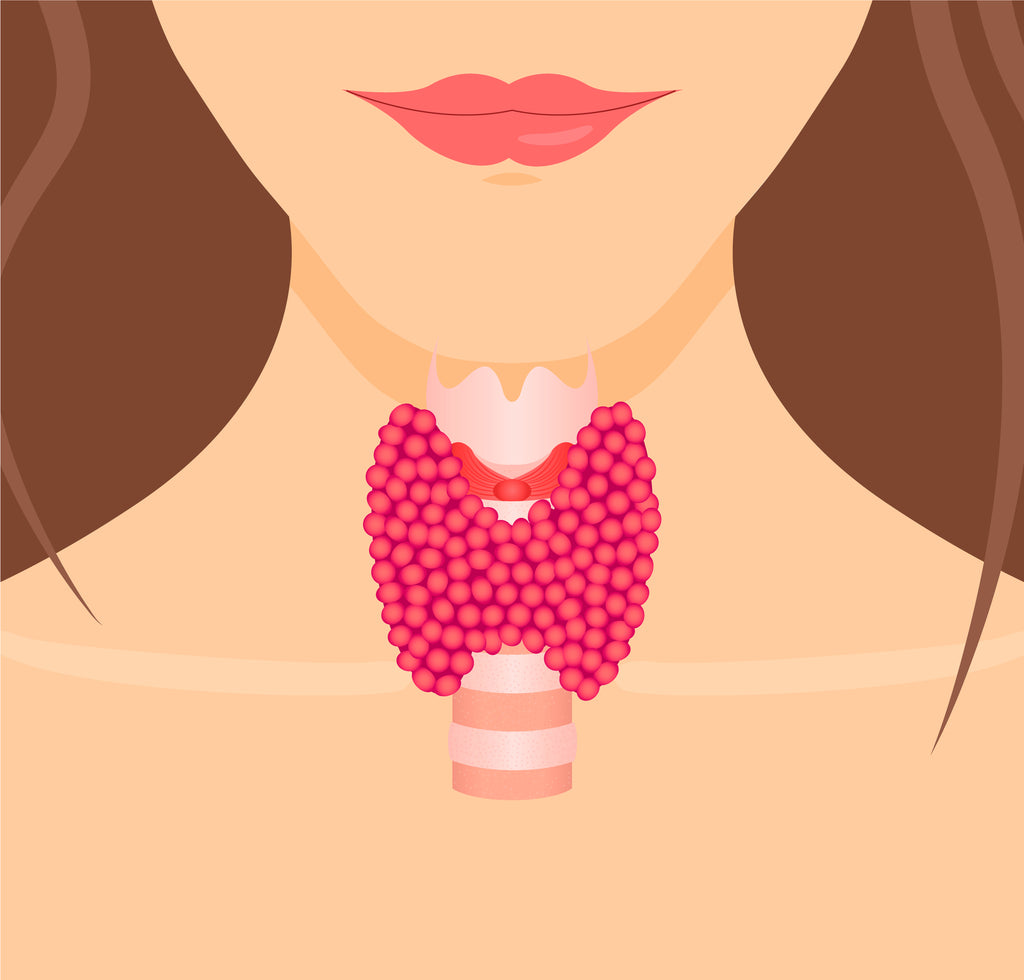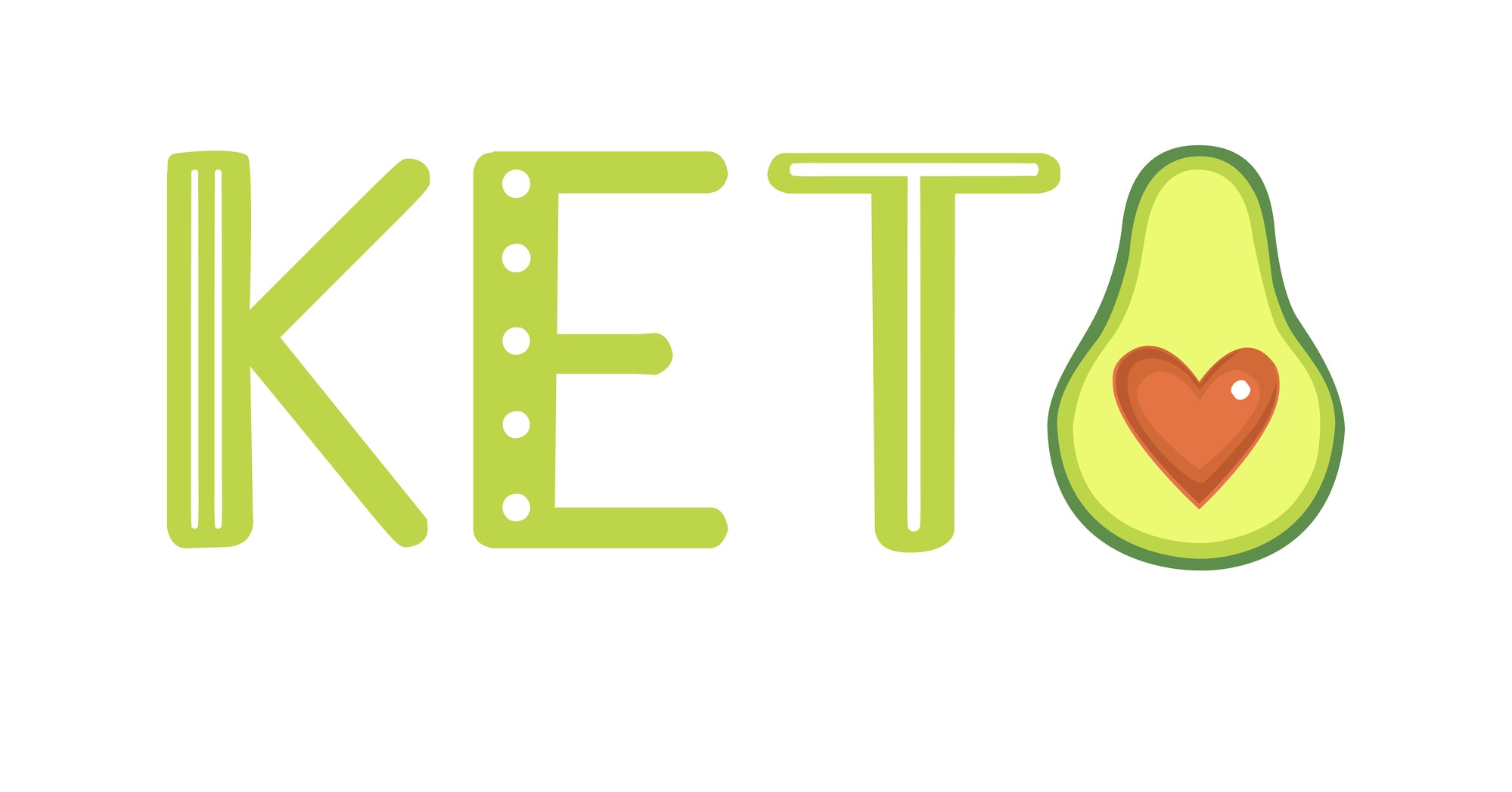The Keto diet is amazing, everybody seems to say these days. You may have heard the Keto diet being touted as a gateway to a myriad of benefits like improving cognition, getting the physique of your dreams, and keeping degenerative diseases at bay. You've probably heard it described as a diet that revs up your performance in the gym, and something that may even give your grandpa a break from his Alzheimer's disease. Amidst these headline-grabbing benefits of the keto diet, most of us fail to acknowledge some of its lesser-known hidden superpowers like thyroid optimization, for example.
Can a Keto Diet Help With Thyroid Problems?

The short answer is yes. The long answer? You may need to give it a serious and disciplined try (no cheating), and commit to a longer period of time to see how exactly this connection affects your thyroid health. After all, we are all unique when it comes to genetics, body chemistry, and overall health challenges. The Keto diet may help your thyroid if you take the diet seriously.
In this article, we will explore the connection between the Keto diet and thyroid, and find out if you can actually benefit from this Keto-thyroid relationship. But first, let's quickly go through what a Keto diet is, and what it is not.
What is a Keto Diet?

The ketogenic diet or the Keto diet is a dietary approach that is extremely low in carbs with very high-fat content. The basic mechanism of this diet is to change the primary fuel source of your body.
When you eat a lot of carbohydrates, your body generates high levels of blood glucose or sugar. To combat this sugar surge, your pancreas secretes insulin which helps transport glucose into different cells of the body where it is burned to derive energy and carry out various normal activities. All excess glucose not needed by the cells is stored by the insulin in the form of dreaded belly fat of which we are all so scared.
On a ketogenic diet, you restrict yourself from eating carbohydrates which means no more excess glucose in the body for fuel. With no fuel source to continue, the body will start looking for alternative sources of energy and will ultimately stumble upon your stored fat. With carbs gone, and no other way to fuel your increasing energy needs, your body will be forced to start tapping into its fat content. To help access and utilize this fat, your body will start to release small chemicals called ketone bodies. These ketone bodies are then used by your body to fulfill its energy requirements. As a result, your fat content starts decreasing and your body starts overcoming the problems related to sugar.

But what should you eat to make sure all this happens? To switch your body into a state of ketosis, your diet must contain a 4:1 ratio of fat to carbohydrates and proteins combined. [1]
In simpler terms, if you are following a Keto diet, your standard food plate must contain 70 percent fat, 20 percent protein, and only 10 percent carbs. While these proportions may seem too difficult to follow, it's actually not that difficult to achieve. The learning curve is easy, and all you need is a bit of patience and motivation.
The Miracles of a Ketogenic Diet
The Keto diet is the go-to dietary plan for every one of you who wishes to improve their brain health, lose weight, and prevent deadly diseases. Some of its top miracle-like benefits are briefly explained below.
Keto Accelerates Weight Loss
As mentioned before, achieving a state of ketosis means your body is actively burning fat to acquire energy. Yes, all those layers of fat that have been troubling you will begin to disappear. The result will be a toned body, and the achievement of your ideal body weight, as well as better blood sugar regulation. [2] [3]
Keto Improves Memory
Don't we all seem to know a grandparent who fails to recognize a loved one when they visit? Yes, most of us have been there. It's a very sad thing to witness, but thankfully the Keto diet does offer some hope.
With the Keto diet, it is actually possible to improve memory in healthy older adults. [4]
Keto Manages Inflammation
The Keto diet can help manage inflammation and improve insulin sensitivity, making it a diet perfect for people with diabetes, hypertension, and high blood cholesterol. [5]
Keto Can Benefit Cancer Patients
People diagnosed with cancer can especially benefit from the Keto diet because of its anti-angiogenic and anti-inflammatory mechanisms. [6]
The Connection between Thyroid and Keto Diet
The thyroid gland is a tiny organ in the shape of a butterfly that sits in front of the neck, directly below Adam's apple. It produces thyroid hormones that control the most basic aspects of all bodily functions and impact all the major systems of the body.
Consider the thyroid gland as the central gear of a car engine. If it breaks, the entire engine is wrecked. Similarly, if anything happens to your thyroid and the levels of thyroid hormones go down, you are bound to experience a whole array of symptoms including weight gain, bone fractures, hair loss, and infertility.

Hypothyroidism, a condition in which the thyroid gland fails to produce enough hormones, is extremely challenging and standard care is hopelessly inadequate. According to research, over 90 percent of the people diagnosed with hypothyroidism produce antibodies against thyroid tissue. [7] These antibodies force the body's own immune cells to attack the thyroid gland and destroy it, inducing a gradual decrease in the circulating thyroid hormones. This autoimmune type of hypothyroidism is known as Hashimoto's thyroiditis and is a fairly common issue as well.
It is the dream of the hypothyroid patient to get their hands on that one substance that will magically reverse the entire disease.
This magic-bullet formula for thryoid issues may exist and it's none other than the Keto diet itself. How does relying on fat and cutting off sugar from the diet treat something so complex? Does science support this keto and thyroid connection? Let's find out.
The Keto Thyroid Connection: Sugar Dysregulation

Of course, there are different aspects of your lifestyle and diet that affect your thyroid. Food intolerances, oxalate sensitivity, nutrient deficiencies, leaky gut, etc. all play important roles. However, dysregulation of the blood sugar is by far the most common culprit behind most thyroid problems. The good news is that sufferers can improve their symptoms by following a low-carb diet like a Keto diet.
A study that took place in 2016 investigated 180 patients of Hashimoto's thyroiditis. The participants were divided into two different groups: one that followed a low-carb, high-protein diet and a second control group that ate without any dietary restrictions. After three weeks, the low-carb group presented with many positive signs including [8]
- A 44% reduction in TPO antibodies
- A 40% reduction in antithyroglobulin antibodies
- A 5% decrease in overall body weight
On the other hand, the group that did not follow any restrictions experienced a 9% and 16% increase in antithyroglobulin and TPO antibodies, respectively.
Many studies have also acknowledged the sugar-regulating effects of the Keto diet in diabetics and obese individuals suffering from Hashimoto's thyroiditis. [9]
The Keto Thyroid Connection: Gluten Intolerance
Gliadin, the protein portion present in gluten, closely resembles the thyroid gland. Both of them share a similar molecular structure, and that's where the actual problem begins. In Hashimoto's thyroiditis, when gliadin comes out of your gut and makes its way to the bloodstream, your body labels it as a foreign intruder and generates antibodies to get rid of it. Because of the similar molecular structure, these antibodies not only destroy gluten but also target the thyroid gland.
What makes it worse is the fact that every time you eat gluten, the immune response produced against it may last up to six months from the day of consumption. What this means is a single meal containing gluten can keep destroying your thyroid bit by bit for months. [10]

Many studies have proven a link between autoimmune thyroid and gluten intolerance and suggested such people keep away from gluten as much as possible. [11] [12] Then you may ask, what is the safest way of minimizing gluten in your food? Following a low-carb diet such as the Keto diet.
It turns out that there actually is a solid and absolutely positive link between the Keto diet and the thyroid gland. Now, let's move on to the next question that must have popped into your head by now: Does this Keto-thyroid connection come with any risks?
Keto Diet and Thyroid: What are the risks?

If you suffer from chronic stress, there are cautions to take before proceeding with the Keto diet. That's because chronic stress can exacerbate hypothyroidism. Under stress, your adrenal glands are signaled by the body to release more cortisol, the stress hormone. This hormone slows down all processes not needed to overcome the stressor, and this includes thyroid hormone synthesis.
In such a situation, inducing ketosis will only increase the existing stress levels and force your body to enter a vicious cycle that will bring terrible consequences. So if you are hypothyroid with underlying adrenal fatigue, you must address your stress levels before going on a keto diet.
Thyroid and Keto Diet: What's the Final Take?

The famous high-fat, low-carb Keto diet can definitely be a way out of a discomforting hypothyroid state. There is enough evidence to support this positive Keto-thyroid connection and its practicality.
However, because everyone is different, you must listen to your body and find out what you can and cannot tolerate. You may get perfect results or you may not respond to this diet at all. In any case, if you are hypothyroid and wish to experiment with the Keto diet, make sure to consult a doctor first to find out if it's right for you.








